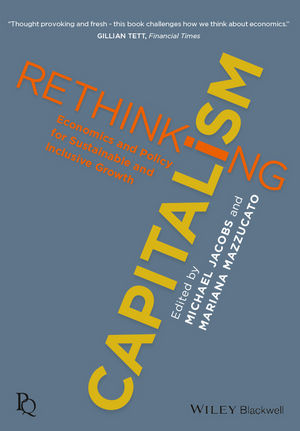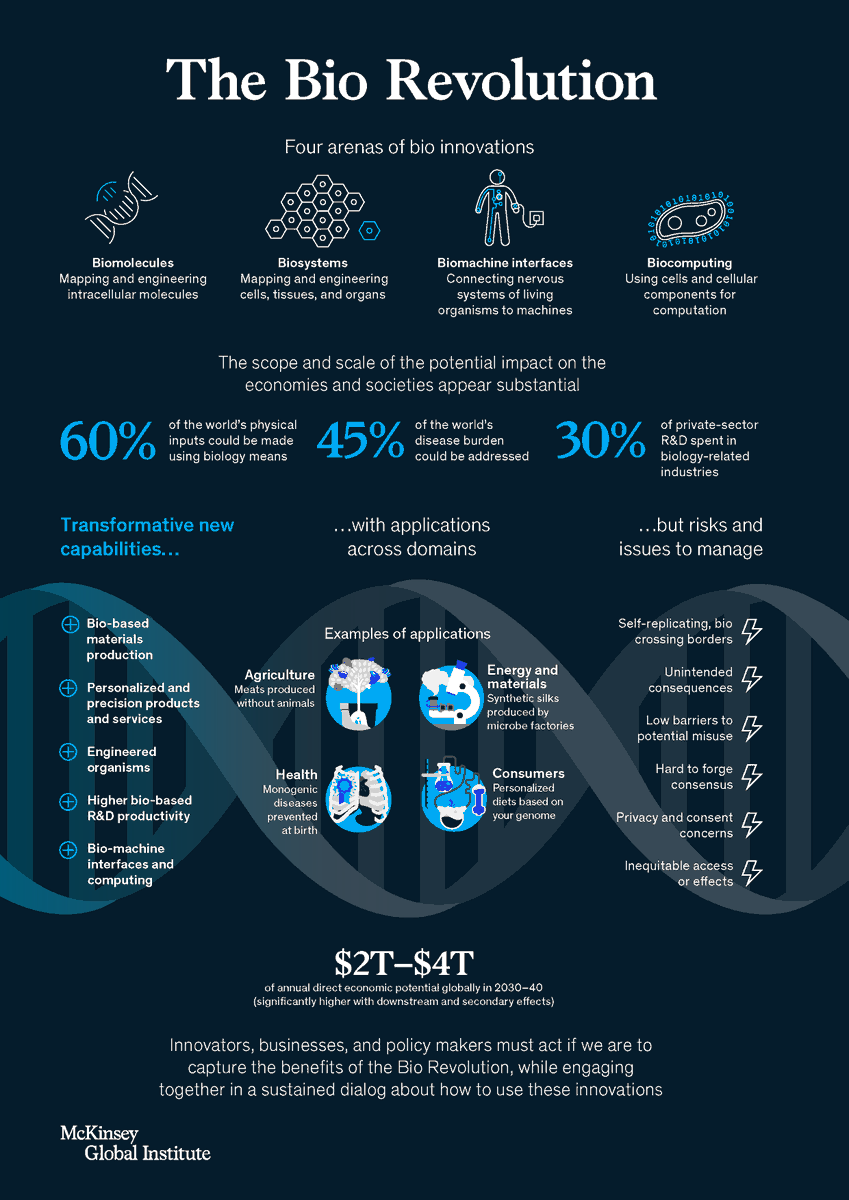How We Can Tackle the COVID-19 Crisis Beyond Testing
If you wear a smartwatch or fitness tracker, you can play a role in monitoring the spread of COVID-19 and other viral diseases like the flu. In this Front Row lecture, Eric Topol, MD, and Jennifer Radin, PhD, discuss how they’re calling on the public to share data from wearable devices for a study that’s helping scientists flag the early onset of contagious respiratory illnesses. By harnessing this key data—including heart rates, sleep and activity levels—from hundreds of thousands of individuals, they seek to improve real-time disease surveillance.
06 de juny 2020
05 de juny 2020
Regulating the healthcare bazaar
What to Do about Health-Care Markets?
Policies to Make Health-Care Markets Work
Martin Gaynor in the Brookings Report proposes three types of policy reforms that would increase competition in health care and improve market functioning:
Policies to Make Health-Care Markets Work
Martin Gaynor in the Brookings Report proposes three types of policy reforms that would increase competition in health care and improve market functioning:
- Reduce or eliminate policies that encourage consolidation or that impede entry and competition.
- Strengthen antitrust enforcement so that federal and state antitrust enforcement agencies can act effectively to prevent and remove harms to competition.
- Create an agency responsible for monitoring and overseeing health-care markets, and give that agency the authority to flexibly intervene when markets are not working
Well, these are only 3 issues, the report highlights the details into the implementation. And if you want to know how far healthcare is from competitive markets, you must start understanding markets. There is a book that may help as a useful guide to start:
04 de juny 2020
Forming beliefs
The Value of Beliefs
Relevant article with key messages:
Relevant article with key messages:
We construct our beliefs to meet two sometimes conflicting goals: forming accurate beliefs to inform our decisions and forming desirable beliefs that we value for their own sake. In this NeuroView, we consider emerging neuroscience evidence on how the brain motivates itself to form particular beliefs and why it does so.
Our beliefs are fundamental parts of what makes each of us unique. They are a major cause of both harmony and discord; shared beliefs bring people together, while divergent beliefs can spark revolutions. In this age of the internet and social media, the ability of beliefs to both invigorate and polarize is more apparent than ever. This raises a fundamental question: how do people arrive at their beliefs? A traditional approach to studying beliefs is grounded on the idea that people build an internal model of the world for the purpose of informing their decisions to help them achieve external goals, such as gaining rewards and avoiding punishments.
In particular, individuals often prefer to hold positive beliefs and hold beliefs with high certainty. To achieve this, changes in information seeking and belief updating are motivated by tapping into the same circuits that drive primary reward seeking. However, unlike primary rewards such as food, beliefs on their own do not directly promote survival.
03 de juny 2020
The narrative of pandemics (2)
Información científica especializada, información pública y medios de comunicación durante la crisis del coronavirus
Today you'll find our article on communication in pandemic times in Blog Economía y Salud AES, how markets of attention and radical uncertainty drive current situation.
Today you'll find our article on communication in pandemic times in Blog Economía y Salud AES, how markets of attention and radical uncertainty drive current situation.
David Hockney
02 de juny 2020
Public Health ethics
Ética en, para y de la Salud Pública
From Andreu Segura, a good article on public health ethics:
Modern public health has not paid much attention to ethics until very recently. Perhaps because a large part of their functions have been developed in public administrations, which are subject to regulations and laws and not to the deontological standards of professional corporations, but also because having such a lovely formal purpose -- health promotion and protection-- it seems that it is not necessary to go to ethics to assess their activities. As it happened in the time of Enlightened Absolutism. An arrogant attitude that could explain popular distrust of some of their recommendations. One obstacle that the application of ethics could overcome.
David Hockney
01 de juny 2020
In memoriam: Adam Wagstaff, a giant of health economics
The Virtual Legacy of Adam Wagstaff in Health Economics: So Much More than Old Wine in New Bottles
On 10 May 2020, the health economics community lost one of its giants with the death of Adam Wagstaff. During his career, Adam made tremendous contributions to the development and analysis of health care financing policies, with a focus on both health equity and efficiency in countries around the world. The huge volume of his work is partially reflected through articles and citations to his work published in Health Economics. The Health Economics Editorial Board, in conjunction with Wiley, prepared this Virtual Issue in Adam's honor. The issue starts with remembrances of Adam by Eddy van Doorslaer, a long-time friend and colleague. The issue also contains, in chronological order, links to the 28 Health Economics articles which Adam wrote or co-authored. We hope this compilation increases awareness of the brilliance of a leading health economist whose contributions were cut short by most unfortunate illness.
Hopper
31 de maig 2020
Can capitalism be reimagined? (4)
Rethinking Capitalism lectures
From UCL Institute for Innovation and Public Purpose;
From UCL Institute for Innovation and Public Purpose;
Western Capitalism is in crisis, with falling productivity, investment and living standards, widening inequality, financial instability and the growing threat of climate change. This undergraduate module provides students with a critical perspective on these ‘grand-challenges’ and introduces them to new approaches to economics and policy which challenge standard thinking.
The module draws on the book “Rethinking Capitalism”, edited by Mariana Mazzucato (Director of IIPP) and Michael Jacobs (Visiting fellow in the UCL School of Public Policy). It features guest academic lectures from some of the chapter authors which can be viewed below. These academic lectures are combined with presentations by policy makers working at the frontline of the issues under discussion
30 de maig 2020
29 de maig 2020
Healthcare built around you?
Bezonomics
How Amazon Is Changing Our Lives, and What the World's Companies Are Learning from It
Amazon Care
Atul Gawande departure from Haven, the alliance between Amazon, JP Morgan and Berkshire for developing health services for their workers has created uncertainty about what is really Amazon going to do.
Anyway, if you look at the web you can check what is already doing for their employees: Amazon Care. Here you'll find the FAQS. Up to now everybody was thinking about health goods and businesses that Amazon could provide (details in this report). Right now they have started a pilot of health system that may be developed anywhere. A platform business, that starts slowly with and app and a physicians group.
If you want to undestand what Amazon really means for the economy (and for healthcare) than a new book can provide you some answers: Bezonomics.
How Amazon Is Changing Our Lives, and What the World's Companies Are Learning from It
Amazon Care
Atul Gawande departure from Haven, the alliance between Amazon, JP Morgan and Berkshire for developing health services for their workers has created uncertainty about what is really Amazon going to do.
Anyway, if you look at the web you can check what is already doing for their employees: Amazon Care. Here you'll find the FAQS. Up to now everybody was thinking about health goods and businesses that Amazon could provide (details in this report). Right now they have started a pilot of health system that may be developed anywhere. A platform business, that starts slowly with and app and a physicians group.
If you want to undestand what Amazon really means for the economy (and for healthcare) than a new book can provide you some answers: Bezonomics.
The global business world will eventually divide into two camps—those who adopt their own version of Bezonomics, and those who don’t. Alphabet, Facebook, Netflix, Alibaba, JD.com, and Tencent have built huge, powerful businesses based on their ability to collect and analyze data, and keep applying those learnings to make their businesses smarter and their offerings to customers more attractive. In their pursuit of AI-driven technologies such as voice and facial recognition, the Internet of Things, and robotics, they’re creating automated business models that will crush traditional businesses that fail to adapt to this new world. And the emergence of 5G technology, which will replace our current digital networks, will only widen the gap. Experts predict that this next generation of Internet connectivity will be as much as a hundred times faster than today’s web.A must read. In my opinion, what really brings Bezonomics to healthcare is the largest expression of commercialism. In other words, healthcare built around excedent appropriation, not around the patient. If this is so (and Atul Gawande departure is a signal) then we all have to stand up against this model and create value and platforms based on professionalism.
The impact that Bezonomics is having on society is just as profound. Some of the big tech companies are sowing discord with fake news, interfering with elections, and violating personal privacy. As Apple CEO Tim Cook put it: “If you’ve built a chaos factory, you can’t dodge responsibility for the chaos.” The global wealth gap has become so out of kilter that politicians in America and Europe have singled out Amazon and other big tech companies for blame. These wealth-creation machines have become so efficient at creating riches for their top employees and shareholders that they’re likely to engender more public outrage and become easy targets for regulators—perhaps in some cases even be broken up.
28 de maig 2020
How advances in biological science are transforming economies and societies
McKinsey Global Institute is well known by their excellent papers and analysis. Forget consultancy for a while, if you are interested in the disruptive knowledge, go to MGI. Recently they have released an excellent report on the Bio Revolution. This is a timely contribution for an issue that those that read this blog already know: we are within a huge change on how life has been considered. CRISPR technology, among others, are changing quickly the landscape.
The potential scope and scale of the (direct and indirect) impact of biological innovations appear very substantial. As much as 60 percent of the physical inputs to the global economy could be produced biologically. Around one-third of these inputs are biological materials (such as wood). The remaining two-thirds are not biological materials, but could, in principle, be produced using innovative biological processes (for instance, bioplastics).
A pipeline of about 400 use cases, almost all scientifically feasible today, is already visible. These applications alone could have direct economic impact of up to $4 trillion a year over the next ten to 20 years. More than half of this direct impact could be outside human health in domains such as agriculture and food, consumer products and services, and materials and energy production. Taking into account potential knock-on effects, new applications yet to emerge, and additional scientific breakthroughs, the full potential could be far larger.A must read.
27 de maig 2020
The role of global governance in a pandemic
COVID-19: Public Health Is a Question of National Security
Three critical points in a document of the Council of Foreign Relations:
Transparency and Knowledge Sharing
The primary flaw in the COVID-19 response has been the opacity in knowledge sharing. China is the first country to claim to have successfully flattened the curve. Research suggests that China’s nonpharmaceutical interventions, such as travel bans, social distancing, isolation, and contact tracing, wereeffective in containing the outbreak.
Strengthening Global Mechanisms
During health crises, the world looks to the primary global health agency, the World Health Organization (WHO), for guidance. Surprisingly, the WHO’s response to COVID-19 was lacking. Although the body had once warned that caution and vigilance were necessary against any future Sudden Acute Respiratory Syndrome (SARS)-like disease, it ignored this advice in late 2019 when managing the mysterious pneumonia in Wuhan, China. For months, it failed to recommend travel restrictions or bans.
Capacity Building
COVID-19 has rendered some of the better health systems in the world inoperable. A country’s first line of defense is the capability of its health system to detect and control contagious diseases. Underinvestment in preparedness and reliance on treatment rather than a preemptive response has proven costly in terms of lives and dollarspportunity to tackle the pandemic was missed, raising questions about the WHO’s credibility.
Juan Correa
26 de maig 2020
How epidemic-macroeconomic models of pandemic create uncertainty
Dealing with Covid-19: understanding the policy choices
A model is as good as its assumptions!. This is obvious and the application requires good data. Both issues, assumptions and data are the reasons why many models doesn't fit in this pandemic. Bad assumptions and bad data give bad conclusions. Have a look at this paper and in p.5 you'll find the different health and economic impact of models under different assumptions. So different that require a clever explanation if somebody wants to use them to take a decision.
A model is as good as its assumptions!. This is obvious and the application requires good data. Both issues, assumptions and data are the reasons why many models doesn't fit in this pandemic. Bad assumptions and bad data give bad conclusions. Have a look at this paper and in p.5 you'll find the different health and economic impact of models under different assumptions. So different that require a clever explanation if somebody wants to use them to take a decision.
VSL-based and SIR-macro models have helped to inform policy decisions in the early stages of the Covid-19 pandemic. However, the existing models are subject to a number of caveats, particularly relating to the uncertainty of their underlying epidemiological projections and stylised economic foundations.
Juan Genovés
25 de maig 2020
Can capitalism be reimagined? (3)
The future of capitalism
Martin Wolf said that this book was one of his main references. And I agree, it contains many well structured messages. Specially, it links economics with politics, quite a difficult issue:
Martin Wolf said that this book was one of his main references. And I agree, it contains many well structured messages. Specially, it links economics with politics, quite a difficult issue:
Our political systems are democratic, but the details of their architecture have increasingly inclined them to polarization. Most of our voting systems favour the two largest parties. So, the menu of choice facing voters depends upon what these two parties offer. The key dangerous step has been that, in the name of greater democracy, in many countries the major political parties have empowered their members to elect their leaders. This has replaced a system in which the leader of a party was drawn from among its most experienced people, and often chosen by its elected representatives.
Leaders can promote new narratives, but the decline of trust in political leaders has inverted authority; people pay more attention to those at the hub of their social networks than to the talking heads on the television. The networks, however, have become self-contained echo-chambers and so we even lack the common space in which to communicate. This is enormously damaging because participation in a common network constitutes the common knowledge that we all hear the same narratives.
Reduced to a sentence, shared identity becomes the foundation for far-sighted reciprocity. Societies that succeed in building such belief systems work better than those based on either individualism or any of the revivalist ideologies. Individualist societies forfeit the vast potential of public goods. The revivalist ideologies are each based on hatred of some other part of society and are culs-de-sac to conflict. In a healthy society, those who become successful have been reared into acceptance of that web of reciprocal obligations.
In contrast to the Utilitarian vision of autonomous individuals, each generating utility from their own consumption, and counting equally in the great moral arithmetic of total utility, the atoms of a real society are relationships. In contrast to the psychopathic selfishness of economic man restrained by the Platonic guardians of social paternalism, normal people recognize that relationships bring obligations, and that meeting them is central to our sense of purpose in life. The toxic combination of Platonic Guardians and economic man that has dominated public policy has inexorably stripped people of moral responsibility, shifting obligations to the paternalist state. In a bizarre parody of medieval religion, ordinary people are cast as sinners who need to be ruled by exceptional people – the moral meritocracy.He is in favour of inclusive politics. Me too. Definitely, capitalism can be reimagined.
24 de maig 2020
Stop Covid with CRISPR Diagnostics (2)
CRISPR–Cas12-based detection of SARS-CoV-2
Mammoth Biosciences (a firm founded by Jennifer Doudna) has partenered with GSK to commercialise a CRISPR Covid test. Therefore, there are right now two firms in the race: Sherlock and Mammoth.
The paper in Nature explains the details:
Mammoth Biosciences (a firm founded by Jennifer Doudna) has partenered with GSK to commercialise a CRISPR Covid test. Therefore, there are right now two firms in the race: Sherlock and Mammoth.
The paper in Nature explains the details:
Here we report the development and initial validation of a CRISPR–Cas12-based assay9 for detection of SARS-CoV-2 from extracted patient sample RNA, called SARS-CoV-2 DNA Endonuclease-Targeted CRISPR Trans Reporter (DETECTR). This assay performs simultaneous reverse transcription and isothermal amplification using loop-mediated amplification (RT–LAMP)14 for RNA extracted from nasopharyngeal or oropharyngeal swabs in universal transport medium (UTM), followed by Cas12 detection of predefined coronavirus sequences, after which cleavage of a reporter molecule confirms detection of the virus. We first designed primers targeting the E (envelope) and N (nucleoprotein) genes of SARS-CoV-2 (Fig. 1a). The primers amplify regions that overlap the World Health Organization (WHO) assay (E gene region) and US CDC assay (N2 region in the N gene)6,15, but are modified to meet design requirements for LAMP. We did not target the N1 and N3 regions used by the US CDC assay, as these regions lacked suitable protospacer adjacent motif sites for the Cas12 guide RNAs (gRNAs). Next, we designed Cas12 gRNAs to detect three SARS-like coronaviruses (SARS-CoV-2 (accession NC_045512), bat SARS-like coronavirus (bat-SL-CoVZC45, accession MG772933) and SARS-CoV (accession NC_004718)) in the E gene and specifically detect only SARS-CoV-2 in the N gene (Supplementary Fig. 1). This design is similar to those used by the WHO and US CDC assays, which use multiple amplicons with probes that are either specific to SARS-CoV-2 or are capable of identifying related SARS-like coronaviruses.
Edward Hopper
Subscriure's a:
Missatges (Atom)













